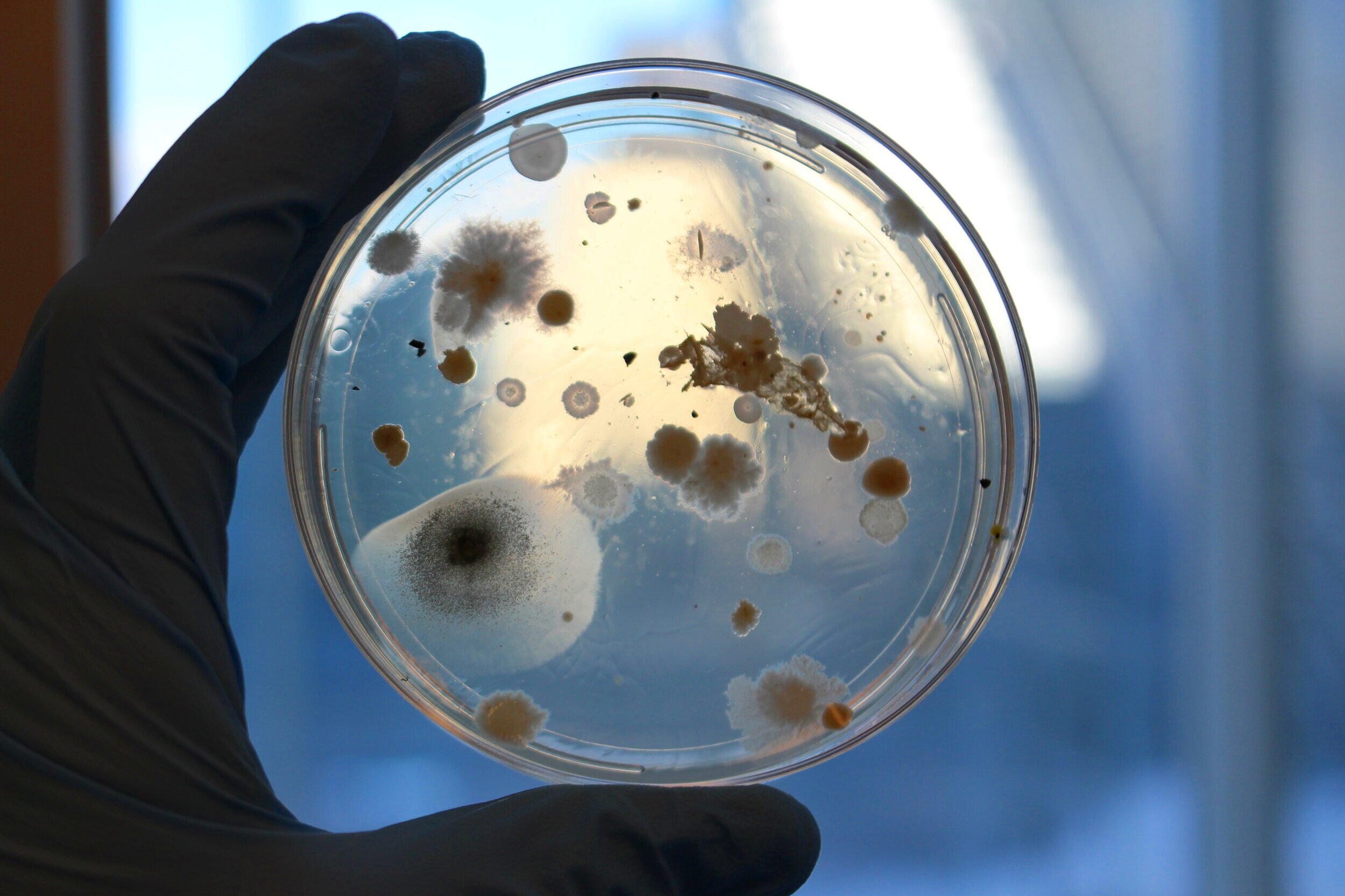
Revealing the value of microbial exploration.
Our Initiatives
Our diverse initiatives engage people with microbes in new ways. No project is too big, and no project is too small, so long as it is beneficial and impactful. Our projects are typically cross-initiative endeavors that incorporate our three focus areas: Microbial Research and Discovery, Microbial Education, and Microbial Art.
Microbial Education.
Our education initiatives use evidence-based practices to effect change. We build accessible tools that enable improved decision-making and enhance engagement. They are intended to enchant the senses and provoke curiosity.
Microbial Art.
Our art initiatives use creativity to aid the exploration process. They engage new audiences and provoke dialogues on how the fearful can be intimate, how the revolting can be beautiful, and how the abstract can be colorfully tangible.
Microbial Discovery.
Our discovery initiatives create new tools, new strategies, and new research to explore the microbial world and facilitate the development of new microbial applications. This work is motivated not just by a wish to harness this microbial technology as soon as possible, but to harness this power before it disappears forever.
Example Projects

Community of Microbes.
(Status: Past)
An art & science & augmented reality technology immersive exhibit (and app) to undertake a colorful microbial journey at the famous Cooper Union Gallery. . . and at home.
Art Component: An exhibit at the Cooper Union gallery.
Discovery Component: Features research on the Microbiology of the Built Environment and links for the audience to participate in associated citizen science projects.
Education Component: Associated education sheets for in-person visits and an AR app with additional information on the science of the microbes included.
Key Partners: Artist Amanda Phingbodhipakkiya, The Cooper Union

Purple Microbe Project.
(Status: Active)
Democratize microbial discovery and help save the world’s amphibians by finding antimicrobial-producing microbes in water near you in this participatory citizen science, education, & community art project.
Art Component: The world’s largest participatory “Bioart work” created by people and microbes, currently featured in a VR gallery.
Discovery Component: Protocol for how to participate in research assessing the biogeography and discovery of relevant microbes.
Education Component: Associated education module for K-12 students to gain bioeconomy-relevant skills and gain authentic research experience.
Key Partners: Professor Brooke Jude, Bard College

The Global Lichen Hunt.
(Status: Active)
Engage with microbes in nature by photographing lichens across the globe using a choose-your-own-adventure style guide in this citizen science education project.
Art Component: Activities related to scientific illustration in field notebooks.
Discovery Component: Features an opportunity to contribute photographic observations via a citizen science app (iNaturalist).
Education Component: Associated education material on the science of lichens and importance of scientific observations.
Key Parnters: The Bell Musuem

Morocco Natural Dyes.
(Status: Active)
A microbial discovery field expedition to uncover microbes that create natural dyes for the carpet weavers of Morocco.
Art Component: An education book that features protocols how how to use natural dyes.
Discovery Component: A field-based exploration to find new microbes to create future natural dyes for the carpet weaving community.
Education Component: An education book that features protocols how how to use natural dyes and education material on the search for new natural dyes from plants and microbes (in English and in Arabic).
Key Parnters: ATW80F, Artisan Project, Ain Leuh Cooperative, Brooke Jude (of Bard College), and partner researchers across Morocco

Wild Sourdough Project.
(Status: Past)
Make sourdough and help scientists learn about the microorganisms involved in some of our oldest technology as part of a global citizen science project.
Art Component: Coloring pages, activity books, and commercial fashion items related to the microbes of fermented foods.
Discovery Component: Opportunity to participate in a citizen science project on the microbial ecology of sourdough.
Education Component: Lesson modules related to the science of sourdough.
Key Partners: The Public Science Lab of North Carolina State University

MORE COMING SOON
Testimonials
“This fall I had to shift my undergrad Field Ecology course online, two weeks into the semester, in response to COVID-19. I quickly developed a series of labs linked to previously published research and/or ongoing citizen science efforts, so that students could practice a variety of field methods and compare data from their local environment to broader contexts. Thank goodness I found the Global Lichen Hunt! Your project page is filled with compelling images and background information to "hook" participants right away; and your additional resources on keeping a field notebook and extending the science of lichens not only enhanced my students' educational experience, but also got them excited about the many possible scientific careers they might pursue after graduation.”
— Professor Erin McKenney, Department of Applied Ecology, North Carolina State University, 2020
"As a component of the research grant from the National Science Foundation that partly funds my molecular biology lab, I run outreach programs targeting middle school students to cultivate engagement with science in general and microbiology specifically. These typically involve isolating wild yeast from the bark of trees. When the COVID-19 pandemic shut schools in the Spring of 2020, all these activities were canceled. Also canceled was an annual retreat for families with profoundly gifted children that I regularly attend. I recognized the explosion in home sourdough activity, found the Wild Sourdough Project, contacted members of the Microbe Institute, and with their help was able to put together within weeks a series of activities that allowed families to safely isolate yeast from their sourdough starters in their own kitchens and mail them to me for analysis. The project worked beautifully and will likely be the basis of my outreach programs in the near future.”
-Associate Professor Michael McMurray, Department of Cell and Developmental Biology, University of Colorado Anschutz Medical Campus, 2020



